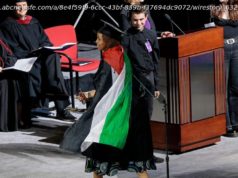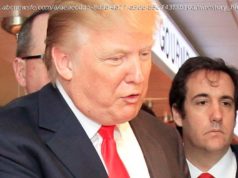“People didn’t care about chefs until ‘Kitchen Confidential,’” says author Andrew Friedman
There was a pause this morning when the news of Anthony Bourdain’s passing landed. A stunned silence, and then a buzz. ”I got 45 text messages, almost all at once,” said chef Scott Bryant, whose mastery Bourdain chronicled in his book, the 2000 breakout success “ Kitchen Confidential .”
“It’s mind-boggling. I’m in shock. Just last week I called [Eric] Ripert to make a reservation at Le Bernardin for a customer. Eric said ‘sure, I’ll take good care of them, but I’ll be on the road. I’m going to Alsace with Tony that week.’”
Ripert and Bourdain were close friends and often traveled together. It was Ripert who is reported to have discovered his dear friend’s body this morning in Bourdain’s hotel room in France.
“Years ago, back when Emeril Lagasse had like five shows on at once, I used to be in the kitchen at Indigo working six nights a week,” remembers Bryan. “Tony used to come in and visit late in [the dinner] service and tease me, ‘Hey, Scott why don’t you call up the Food Network, get yourself a show.’ That wasn’t me. I don’t speak good English and, for the most part, I’m a misanthrope — I hate people. Tony would laugh and say, ‘You’re the last of the Mohicans,’ and maybe he’s right. But I’ve never seen Tony depressed. I’ve never seen Tony angry. I’ve never seen Tony pissed. He’s always been a happy-go-lucky guy. Smoke a little weed and get mellow. He never let fame get to his head.”
It’s a sentiment echoed by Andrew Friedman, author of “ Chefs, Drugs and Rock & Roll,” a history of American chefs. “He created an interest in chefs. People didn’t care about chefs until ‘Kitchen Confidential,’ not really. I read in Publisher’s Weekly that one year Bourdain wrote the most forewords to other people’s books, and you know what he said about that? He said ‘hey, there was a time I had just written my first book too, I just want to make it a little easier, just help where I can.”
“Tony treated writers as well as chefs as colleagues. It was flattering,” said Friedman. “I really think he knew what he meant to people and he wore that mantle very comfortably.”
Bourdain was a writer and a TV personality, but he took responsibility for the stories he was telling, made sure they were the stories he wanted to tell, told the way he wanted to tell them. “He totally was aware of what appropriation was. He came into people’s houses as a participant, not a tourist,” said Michael W. Twitty, chef, historian and author of “ The Cooking Gene.“ „He is there totally, and with respect. He experienced the lives of others. He displayed and celebrated the food cultures of West Africa. Nobody, really nobody did that. All of it — music, dance politics, culture — he knew you had to include it all. And he broke bread with everybody: Felicia ‚Snoop‘ Pearson from ‘The Wire,’ Tahitian transgender folk, kids in Haiti, poor white Americans, President Obama, everybody.”
“It’s hard,” said Twitty. “It’s hard to see someone so full of life, so loved, a father, a seeker, just gone. I woke up this morning and I heard the news and I thought, ‘Wow. I’ll never get a chance to shake that man’s hand and say, just thank you.’”
Last year, Bourdain sat down with Salon’s Alli Joseph on “Salon Talks,” along with director Lydia Tenaglia and celebrated chef Jeremiah Tower, the subject of the documentary „Jeremiah Tower: The Last Magnificent“ that Bourdain executive-produced for CNN. Here is their conversation:






